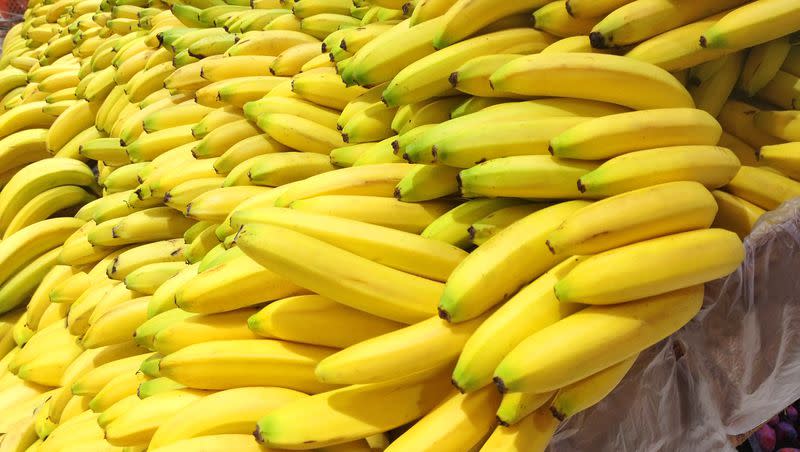6 foods that relieve bloating and gas

Experiencing bloating and gas can be uncomfortable. Eating certain foods, such as foods that contain gluten and dairy, may exacerbate these symptoms. There are also foods such as bananas that can aid in relieving the uncomfortable symptoms of bloating and gas.
Here are six foods that may ease symptoms of bloating and gas.
Related
1. Bananas
Bananas are an excellent source of potassium — a nutrient that helps regulate sodium and supports healthy water retention levels, per Medical News Today. They are also packed with fiber, which helps regulate bowel movements and remove waste from the body.
“Part of what causes your body to retain water is you’ve eaten too much sodium,” Jessica Cording, a registered dietitian and author of “The Little Book of Game Changers,” told Women’s Health. “Potassium-rich foods help flush out sodium and water.”
A study from 2011 reports that bananas may be associated with reduced bloating. Participants in the study who ate two bananas every day experienced significantly less bloating than those who did not.
Related
2. Celery
Celery is 95% water, but it also contains mannitol, a sugar alcohol known to soften stool by pulling water into the digestive tract — operating similarly to a laxative, per Cleveland Clinic.
According to a 2017 study, celery also contains high levels of a flavonoid called apigenin. The research shows that apigenin can influence growth of gut bacteria, which may improve digestion.
3. Ginger
Ginger has a reputation for its ability to soothe upset stomachs and ease bloating. It may even increase gastric emptying and reduce bloating, a 2019 study found.
“(Ginger) also has a nice relaxing effect on your intestines, reducing inflammation in your colon, which helps the food you eat pass through your system more easily, and in turn, reduce the bloat and gas you experience,” says Kristin Kirkpatrick, a registered dietitian, per Women’s Health.
If you do not feel like eating ginger due to uncomfortable bloating, try drinking ginger tea for the same impact.
4. Pineapple
In addition to vitamin C, fiber and manganese, pineapple contains an enzyme called bromelian, which assists in healthy digestion and is often used to treat digestive disorders, according to Healthline.
“There’s a natural enzyme in pineapple called bromelain that aids digestion. It does this by breaking down proteins in the food moving through your system, which basically improves your ability to process it,” reports the Cleveland Clinic. “Bromelain is so effective at softening up tough food, by the way, that it’s also used as a meat tenderizer.”
An animal study from 2010 found that pineapple juice helped reduce inflammation in mice suffering from inflammatory bowel disease. The study suggests pineapple juice could have a similar impact on humans.
5. Oatmeal
Beginning the day with a bowl of oatmeal might be advantageous if you struggle with bloating and gas. The high fiber in oats can kickstart your digestive system early in the day.
“Starting your morning with oatmeal may help you poop earlier in the day, too, flushing out waste hanging around from the previous day,” reports Cleveland Clinic.
Additionally, oats contain a type of fiber called beta glucan, which has anti-inflammatory properties which can alleviate inflammation of the colon, studies show.
6. Turmeric
For thousands of years, turmeric has been used for its medicinal properties, per Mount Sinai. Curcumin, a compound found in turmeric, may effectively treat irritable bowel syndrome and other digestive ailments, studies suggest.
In a 2022 study, 51 individuals consumed curcumin extract daily. Participants noticed improvement in bloating and irritable bowel syndrome symptoms after just four to 12 weeks.
In another study, from 2016, participants took curcumin and fennel essential oil every day for one month. At the end of the month, participants experienced significantly improved symptoms of irritable bowel syndrome.

